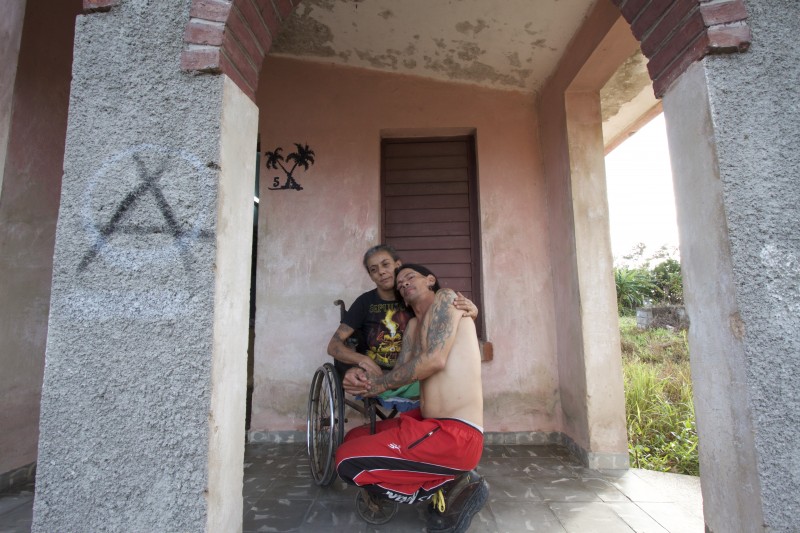
Yohandra (seated) and Gerson are of the few left who hold on to the memories of the Pinar del Río Sanitarium in Cuba. Both were able to salvage the medical files of several patients who passed away there, many of whom were their friends. Photo: Radio Ambulante.
In Cuba, Gerson and Yohandra are known as “freaks” (frikis in Spanish), a group devoted to 1980s and 90s rock and heavy metal. Rock music is more than just entertainment to “freaks”; it is a lifestyle, like a religion. Gerson and Yohandra are one of the few left of their generation. They live in the Cuban province Pinar del Río, where there once stood a sanitarium whose mission was to prevent the spread of the HIV/AIDS epidemic during the 80s and 90s. Ruins, the medical files they managed to save, and their memories are all that remain.
And with this we kickoff the new collaboration between Global Voices and Radio Ambulante, a producer of radio stories from any country where there is a Spanish-speaking population, including the United States.
Global Voices author and Radio Ambulante reporter Luis Trelles (@cu_bata) brings us “The Survivors”, a story about the “freaks” from the Pinar del Río Sanitarium. During the Special Period in Cuba, many “freaks” infected themselves with AIDS in order to have what they thought to be better living conditions:
Gerson: La gente prefería antes de estar viviendo en la calle, estar enfermo y venir para acá, para tenerlo todo, y de gratis que era lo que más influía, que era gratis, regalado.
Gerson: Before living on the street, people preferred to be sick and come here to have everything —and for free– which was a most influential factor: it was free, a gift.
However, the lack of knowledge about AIDS during that time took many peoples’ lives:
Narrador: Pero había tanto que no sabían acerca del virus. Aún no se hablaba públicamente de la epidemia, ni de la forma en que se contagiaba. Los frikis que se inyectaban eran casi todos hombres y no sabían que podían infectar a otra gente a través del contacto sexual.
Narrator: But there was so little information about the virus. People didn't speak openly about the epidemic yet, nor the ways in which it was transmitted. Almost all of the “freaks” who injected themselves were men; they didn't know they could infect others through sexual contact.
Listen to the complete story in Spanish here:
And find the story in Spanish with English subtitles on YouTube:






